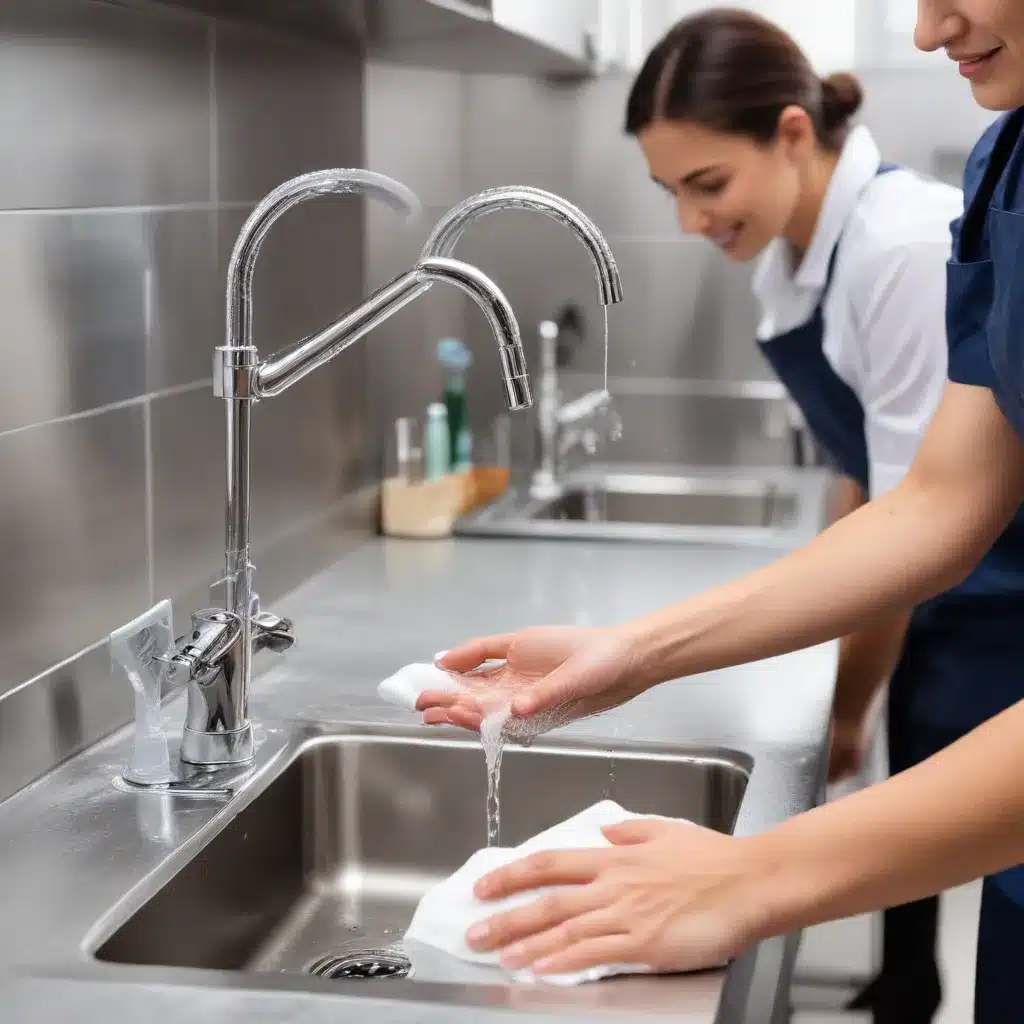
Good personal hygiene is a critical component of food safety and quality in the commercial kitchen. As a seasoned culinary professional, I understand the importance of upholding the highest standards of cleanliness and sanitation to protect both customers and staff. In this comprehensive guide, we’ll delve into the essential practices for maintaining proper handwashing and personal hygiene in the foodservice industry.
The Importance of Personal Hygiene in the Commercial Kitchen
Proper personal hygiene is more than just looking and feeling clean – it’s a fundamental aspect of food safety that helps prevent the transmission of harmful bacteria and diseases. In the foodservice industry, where food handling and preparation are constant, even the smallest lapses in hygiene can have severe consequences.
According to the World Health Organization (WHO), 10% of people worldwide become sick after eating contaminated food, most of which are caused by bacteria. This underscores the critical role that personal hygiene plays in safeguarding public health and maintaining the reputation of a food establishment.
Cross-contamination is a significant threat in the kitchen and is often caused by seemingly minor errors, such as poor hand hygiene or the use of dirty towels. By maintaining good personal hygiene practices, you can help control the spread of bacteria, keeping your customers safe and healthy.
Beyond food safety, proper personal hygiene also helps to instill confidence in your customers. When they see that the staff are taking cleanliness and professionalism seriously, it reinforces their trust in the establishment and the quality of the food being prepared.
Essential Handwashing Practices
At the heart of good personal hygiene in the commercial kitchen is thorough and frequent handwashing. Washing your hands is perhaps the most crucial step in preventing the spread of germs while working with food.
According to the CDC, you should wash your hands:
- Before, during, and after preparing food
- Before eating food
- After using the toilet
- After blowing your nose, coughing, or sneezing
- After touching money
- After taking out the trash
- After touching any surface that may be contaminated
The proper handwashing technique involves:
- Wetting your hands with clean, running water (warm or cold).
- Applying soap and lathering by rubbing your hands together for at least 20 seconds, making sure to scrub the backs of your hands, between your fingers, and under your nails.
- Rinsing your hands thoroughly under clean, running water.
- Drying your hands using a clean towel or air dryer.
It’s important to note that using gloves does not replace the need for thorough handwashing. Gloves are meant to protect the food, not keep your hands clean. You should still wash your hands before putting on and after removing gloves.
Maintaining Personal Cleanliness
Proper handwashing is just one aspect of personal hygiene in the commercial kitchen. Here are some other essential practices to uphold:
Grooming and Appearance
- Keep your hair clean, well-groomed, and securely restrained or covered with a hair net or hat.
- Trim and clean your nails regularly, avoiding nail polish or artificial nails.
- Maintain a clean and trimmed beard or mustache.
- Avoid wearing excessive jewelry, as it can harbor bacteria and pose a safety risk.
Clothing and Uniforms
- Wear clean, freshly laundered uniforms or clothing every day.
- Change your apron frequently, as it can easily become contaminated.
- Avoid adjusting your clothing or touching your face while handling food.
Avoiding Contamination
- Refrain from smoking, chewing gum, or eating in food preparation areas.
- Cover any cuts, sores, or wounds with a clean, waterproof bandage and wear gloves if necessary.
- Keep personal items, such as phones, bags, and jackets, away from food preparation surfaces.
Staying Home When Sick
If you are experiencing symptoms of illness, such as vomiting, diarrhea, fever, or jaundice, it is crucial to stay home until your symptoms have subsided for at least 24 hours. Reporting any illness to your supervisor is essential to prevent the spread of foodborne illnesses.
Fostering a Culture of Cleanliness
Maintaining proper personal hygiene in the commercial kitchen is not just the responsibility of individual employees – it’s a shared commitment that must be cultivated throughout the organization.
Employers and managers play a crucial role in setting the tone and expectations for personal hygiene. This includes:
- Providing comprehensive training on food safety and personal hygiene practices
- Ensuring that all necessary supplies, such as soap, paper towels, and clean uniforms, are readily available
- Regularly inspecting and monitoring adherence to hygiene standards
- Implementing clear policies and consequences for non-compliance
By fostering a culture of cleanliness and professionalism, food establishments can not only protect their customers but also enhance their reputation and build customer trust.
Conclusion
Proper handwashing and personal hygiene are essential to maintaining a safe, sanitary, and reputable commercial kitchen. By following the practices outlined in this guide, you can help prevent the spread of harmful bacteria, protect your customers, and uphold the highest standards of food safety and quality.
Remember, good personal hygiene is not just about looking and feeling clean – it’s a crucial part of being a responsible and professional member of the foodservice industry. By making handwashing and personal cleanliness a priority, you’re not only safeguarding public health but also contributing to the overall success and reputation of your establishment.
For more information on food safety and kitchen best practices, be sure to explore the extensive resources available on the Kitchen Warrior blog. Together, we can create a safer and healthier foodservice industry, one clean hand at a time.


